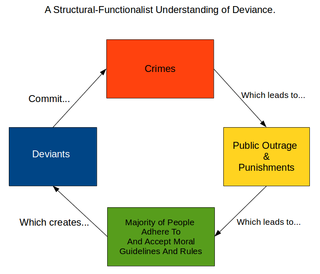Related Research Articles

The Americans with Disabilities Act of 1990 or ADA is a civil rights law that prohibits discrimination based on disability. It affords similar protections against discrimination to Americans with disabilities as the Civil Rights Act of 1964, which made discrimination based on race, religion, sex, national origin, and other characteristics illegal, and later sexual orientation and gender identity. In addition, unlike the Civil Rights Act, the ADA also requires covered employers to provide reasonable accommodations to employees with disabilities, and imposes accessibility requirements on public accommodations.
Special education is the practice of educating students in a way that accommodates their individual differences, disabilities, and special needs. This involves the individually planned and systematically monitored arrangement of teaching procedures, adapted equipment and materials, and accessible settings. These interventions are designed to help individuals with special needs achieve a higher level of personal self-sufficiency and success in school and in their community, which may not be available if the student were only given access to a typical classroom education.

Forensic psychology is the practice of psychology applied to the law. Forensic psychology is the application of scientific knowledge and methods to help answer legal questions arising in criminal, civil, contractual, or other judicial proceedings. Forensic psychology includes research on various psychology-law topics, such as jury selection, reducing systemic racism in criminal law, eyewitness testimony, evaluating competency to stand trial, or assessing military veterans for service-connected disability compensation. The American Psychological Association's Specialty Guidelines for Forensic Psychologists reference several psychology subdisciplines, such as social, clinical, experimental, counseling, and neuropsychology.

Forensic psychiatry is a subspeciality of psychiatry and is related to criminology. It encompasses the interface between law and psychiatry. According to the American Academy of Psychiatry and the Law, it is defined as "a subspecialty of psychiatry in which scientific and clinical expertise is applied in legal contexts involving civil, criminal, correctional, regulatory, or legislative matters, and in specialized clinical consultations in areas such as risk assessment or employment." A forensic psychiatrist provides services – such as determination of competency to stand trial – to a court of law to facilitate the adjudicative process and provide treatment, such as medications and psychotherapy, to criminals.
Developmental disability is a diverse group of chronic conditions, comprising mental or physical impairments that arise before adulthood. Developmental disabilities cause individuals living with them many difficulties in certain areas of life, especially in "language, mobility, learning, self-help, and independent living". Developmental disabilities can be detected early on and persist throughout an individual's lifespan. Developmental disability that affects all areas of a child's development is sometimes referred to as global developmental delay.
In criminal law, the right to counsel means a defendant has a legal right to have the assistance of counsel and, if the defendant cannot afford a lawyer, requires that the government appoint one or pay the defendant's legal expenses. The right to counsel is generally regarded as a constituent of the right to a fair trial. Historically, however, not all countries have always recognized the right to counsel. The right is often included in national constitutions. Of the 194 constitutions currently in force, 153 have language to this effect.
In United States and Canadian law, competence concerns the mental capacity of an individual to participate in legal proceedings or transactions, and the mental condition a person must have to be responsible for his or her decisions or acts. Competence is an attribute that is decision-specific. Depending on various factors which typically revolve around mental function integrity, an individual may or may not be competent to make a particular medical decision, a particular contractual agreement, to execute an effective deed to real property, or to execute a will having certain terms.
Mental health courts link offenders who would ordinarily be prison-bound to long-term community-based treatment. They rely on mental health assessments, individualized treatment plans, and ongoing judicial monitoring to address both the mental health needs of offenders and public safety concerns of communities. Like other problem-solving courts such as drug courts, domestic violence courts, and community courts, mental health courts seek to address the underlying problems that contribute to criminal behavior.
A presentence investigation report (PSIR) is a legal document that presents the findings of an investigation into the "legal and social background" of a person convicted of a crime before sentencing to determine if there are extenuating circumstances which should influence the severity or leniency of a criminal sentence. The PSIR is a "critical" document prepared by a probation officer via a system of point allocation, so that it may serve as a charging document and exhibit for proving criminal conduct. The PSIR system is widely implemented today.
A diversion program, also known as a pretrial diversion program or pretrial intervention program, in the criminal justice system is a form of pretrial sentencing that helps remedy behavior leading to the arrest. Administered by the judicial or law enforcement systems, they often allow the offender to avoid conviction and include a rehabilitation program to avoid future criminal acts. Availability and the operation of such systems differ in different countries.
In the United States criminal justice system, a competency evaluation is an assessment of the ability of a defendant to understand and rationally participate in a court process.
Research published from 2000 to 2020 illustrates increased prevalence rates of sexual violence against people with intellectual disabilities, compared to the general population.:61 The World Health Organization (WHO) funded a study which concluded that 15% of the adult population worldwide in 2012 had a disability, putting them at increased risk of physical, sexual, and intimate partner violence. Of that 15%, 6.1% or an estimated 7,008,716,704 adults worldwide had intellectual disability with 5.5% experiencing sexual violence. In another 2012 report, the WHO found that worldwide, children with intellectual disabilities experienced a 4.6 times greater risk of sexual violence than those without disability.
Trial as an adult is a situation in which a juvenile offender is tried as if they were an adult, whereby they may receive a longer or more serious sentence than would otherwise be possible if they were charged as a juvenile.

United States federal probation and supervised release are imposed at sentencing. The difference between probation and supervised release is that the former is imposed as a substitute for imprisonment, or in addition to home detention, while the latter is imposed in addition to imprisonment. Probation and supervised release are both administered by the U.S. Probation and Pretrial Services System. Federal probation has existed since 1909, while supervised release has only existed since 1987, when it replaced federal parole as a means for imposing supervision following release from prison.

Judge Ginger Lerner-Wren is a county court judge in the Criminal Division of the 17th Judicial Circuit, Broward County, Florida. She is an adjunct professor, Nova Southeastern University, Criminal Justice Institute, Doctoral (On-line).
This disability rights timeline lists events relating to the civil rights of people with disabilities in the United States of America, including court decisions, the passage of legislation, activists' actions, significant abuses of people with disabilities, and the founding of various organizations. Although the disability rights movement itself began in the 1960s, advocacy for the rights of people with disabilities started much earlier and continues to the present.
Pretrial services programs are procedures in the United States to prepare cases for trial in court. In most jurisdictions pretrial services programs operate at the county level. Six US states operate and fund pretrial services programs at the state level. The US federal courts system operates pretrial services in all 94 federal districts.
Howard Center is a Burlington, Vermont-based nonprofit organization that offers professional crisis and counseling services to children and adults; supportive services to individuals with autism and developmental disabilities who need help with education, employment, and life maintenance skills; counseling and medical services for those struggling with substance use disorders; and interventions and supports for adults with serious and persistent mental health challenges in Chittenden County, Vermont's most populous county. Howard Center collaborates with many community partners and is a United Way of Northwest Vermont-funded agency.

Lifetime probation is reserved for relatively serious legal offenders. The ultimate purpose of lifetime probation is to examine whether offenders properly maintain good behavior as well as capability of patience under lifetime probation serving circumstance. An offender is required to abide by particular conditions for rest of their entire life in order to nurture superior social behaviour as a punishment for their criminal offence. Condition of probation orders contain supervision, electronic tagging, reporting to his or her probation or parole officer, as well as attending counselling. The essential component of lifetime probation carries the sense of being examined for well-being character and behaviour for life term period. Legislative framework regarding probation may vary depending on the country or the state within a certain country as well as the duration and condition of probational sentencing.

People with disabilities are at greater risk of contracting COVID-19 and have higher rates of mortality than non-disabled populations. This is especially true for people with intellectual and developmental disabilities, individuals who reside in care facilities, and women with disabilities. People with disabilities are at greater risk of experiencing mental health issues related to the pandemic, such as feelings of loneliness and isolation. They may be at greater risk of domestic violence and abuse during the pandemic. People with disabilities are more likely to experience unemployment as a result of the pandemic and may require changes to the types of accommodations they require for work. Children with disabilities are experiencing disruptions to their educational programming. Remote learning poses a host of challenges for children with disabilities, including disruptions to physical and occupational therapies and access to assistive technologies.